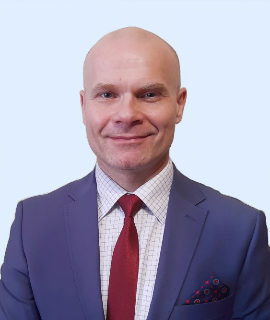Title : Emerging thermophilic bacteriophage model: deciphering TP-84 proteomics
Abstract:
Thermophilic bacteriophages are a rare research objects, nevertheless they are highly interesting because of their often atypical biology and practical potential applications in molecular biology and biotechnology. Resistance to a wide temperature range makes them potentially a useful tool for scientists in areas not available for standard mesophilic model organisms. Our research focuses on unique thermophilic bacteriophage, TP-84 originally isolated in 1952 from greenhouse soil using Geobacillus stearothermophilus as a host. Previously we have sequenced TP-84 genome and bioinformatics analysis of its 47.7-kbp double-stranded DNA revealed the presence of 81 coding sequences (CDSs) coding for polypeptides of 4 kDa or larger (PLoS ONE 2018;13(4): e0195449). Because the genome sequence shown essentially no similarity to any previously characterized bacteriophage, TP-84 was classified as a new genus tp84virus within the Siphoviridae family. Based on a homology search, a hypothetical function could be assigned to 31 CDSs. The previous bioinformatics analysis was partially verified by confirmation of 33 TP-84 proteins, which included: a) cloning of a selected CDS in Escherichia coli, coding for a DNA single-stranded binding protein (SSB; gene TP84_63), b) purification and functional assays of the recombinant TP-84 SSB, which has been shown to improve PCR reactions, c) mass spectrometric (MS) analysis of TP-84 bacteriophage capsid proteins, d) purification of TP-84 endolysin activity, e) MS analysis of the host cells from infection time course. To continue deciphering TP-84 proteomics and verify biosynthesized proteins have taken a novel approach - using commercial Escherichia coli-based cell-free protein synthesis (CFPS), in vitro alternative to the heterologous in vivo expression of proteins. Using a coupled transcription/translation system designed to synthesize proteins encoded by a cloned or PCR amplified DNA template under the control of a T7 RNA polymerase promoter in different mode than developed by the manufactures we synthesized bacteriophage proteins in vitro. The modification included omitting addition of T7 RNA polymerase and utilizing residual Escherichia coli RNA polymerase, as we have found out that it has affinity for TP-84 promoters. LCMS analysis confirmed the presence of 62 bacteriophage proteins, including 16 proteins not yet confirmed by proteomic analysis. Together with an independent biochemical approach, in our laboratory we have totally confirmed 71 TP-84 proteins.
What will audience learn from your presentation?
- How to aid in the decoding of proteomics in organisms using cell-free protein synthesis a powerful and versatile alternative to the heterologous in vivo expression of proteins.


